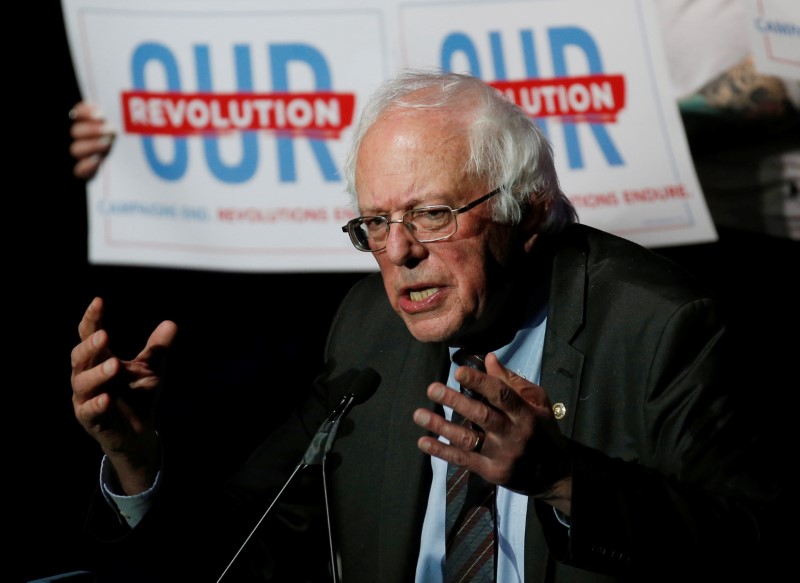WASHINGTON (Reuters) - U.S. Senator Bernie Sanders said on Saturday that President Donald Trump was right to call Australia's universal healthcare system better than the U.S. system.
Sanders, a self-described democratic socialist who ran for the Democratic presidential nomination last year, also said the Senate should use the Australian system as a model while crafting an alternative to Republican healthcare legislation that Trump endorses.
"President Trump is right. The Australian healthcare system provides healthcare to all of its people at a fraction of the cost than we do," Sanders commented on Twitter.
The tweet was accompanied by a short video that set out the virtues of Australia's universal healthcare system, saying it guarantees better service to all Australians at about half the cost of U.S. healthcare. The video also noted that Australians can expect to live longer than Americans, on average.
Sanders' tweet came two days after Trump told Australian Prime Minister Malcolm Turnbull in New York: "You have better healthcare than we do."
The president's comment raised eyebrows, coming just after the U.S. House of Representatives had approved a Trump-backed bill that would overturn much of former President Barack Obama's signature healthcare law and move the U.S. system further away from universal coverage.
The White House later said Trump was simply being nice to an ally and does not think the United States should adopt Australia's healthcare approach.
The healthcare legislation that Trump endorses would pare back insurance protections for the sick, and, according to nonpartisan congressional researchers, would lead to 24 million more Americans being without health coverage by 2026.
But the bill's approval in the House on Thursday sent the legislation to the Senate, where it has little support.
"We will take this pathetic healthcare bill, throw it in the garbage can and do something that will work for ordinary Americans instead," Sanders said in a second Saturday tweet.
A Vermont independent, Sanders has become more influential in the Senate since 2016, when he took his long-shot presidential bid and turned it into a political movement against inequality.

(This story corrects name of Australian prime minister in paragraph 5)